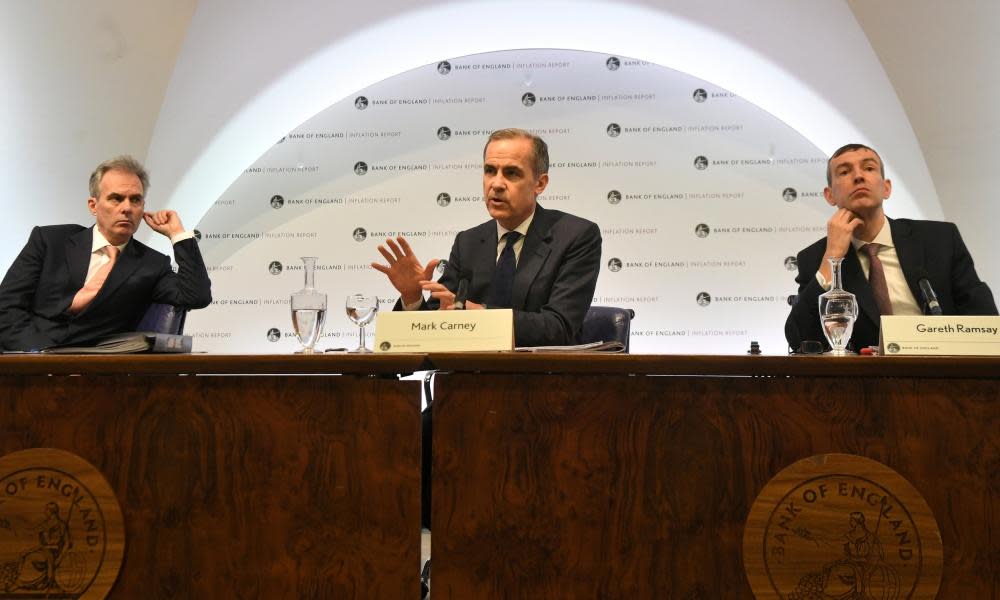Brexit will knock 5% off wage growth, says Mark Carney

The Bank of England has warned that economic uncertainty caused by the Brexit vote will knock 5% off UK wage growth by the year end.
Mark Carney, the bank’s governor, said British workers had already suffered a loss in earnings growth of 3.5% - compared with pre-referndum froecafter inflation is taken into account, and would see that loss swell to 5% by the end of the year as wages growth remained below inflation.
The verdict on the impact of the referendum vote revealed that the economy has expanded over the last 18 months largely due to the buoyant global economy. Without the recovery in the eurozone and Japan and consistent growth in the US, the picture would have been even gloomier, he said.
Carney has come under fire from Brexit campaigners who have accused the governor of siding with the pro-EU lobby following a series of pessimistic forecasts that have proved to be exaggerated.
The Bank of England has been forced to upgrade its forecasts for GDP growth and employment since a collapse in business and consumer confidence after the vote sparked fears of a recession.
Speaking to MPs on Wednesday, Carney said Bank of England forecasts in May 2016 predicted real wages would increase strongly through the next two years as inflation stayed low. But the vote to leave had triggered a dramatic fall in the value of the pound, which increased the cost of imports and sent inflation spiking above wages growth.
Carney said the claim by Brexit-supporting economists that a currency devaluation had provided a boost to the economy was wrong, saying its main effect was to make people poorer.
“Depreciations don’t work. They have an economic effect, but they’re not a good economic strategy. They may be an outcome of various things … but it’s how you make yourself poorer,” he said.
Business investment was also lower as firms hit the pause button on major projects, leaving the economy’s natural rate of GDP growth almost half a percentage point lower at around 1.5%.
He said: “It’s uncertainty about what’s the relationship going to be with our biggest trading partner. Why wouldn’t you hold back if that’s going to be materially affected?”
However, he told members of the Treasury select committee that recent official data showed the economy was robust and that the BoE’s interest rate setting committee planned to press on with interest rate rises.
Figures for the three months to December revealed that average annual earnings growth nudged up from 2.4% to 2.5% and employment, most of it from full time jobs, increased by 88,000.
The UK also had the strongest two quarters of productivity growth since the recession of 2008 after output per hour rose 0.8%
Yet unemployment increased by the largest amount in five years and employment and productivity growth slipped back. Wages have also played catch-up from a virtual freeze in the aftermath of the Brexit vote increased from a low point last year when growth slumped to 1.6%.
The bank’s chief economist, Andrew Haldane, also told MPs the bank would be watching to see how the trends for employment, wages and investment developed over the coming months.
He said that while it was possible to view the economy in a negative light, it would be wrong to halt the BoE’s plans to raise interest rates.
He said: “Historically the thing that has really killed jobs has been central banks stepping on the brakes too late.”
“As [former Federal Reserve chair] Janet Yellen says, recoveries don’t die of old age, they die because banks step on them, because they react too late.
“We’re absolutely clear that we don’t want to be back there again, because it’s bad news for jobs. And that means going in this limited and gradual way to head things off in advance to prevent having to step on the brakes and handbrake turn at a later stage.”

 Yahoo News
Yahoo News 
